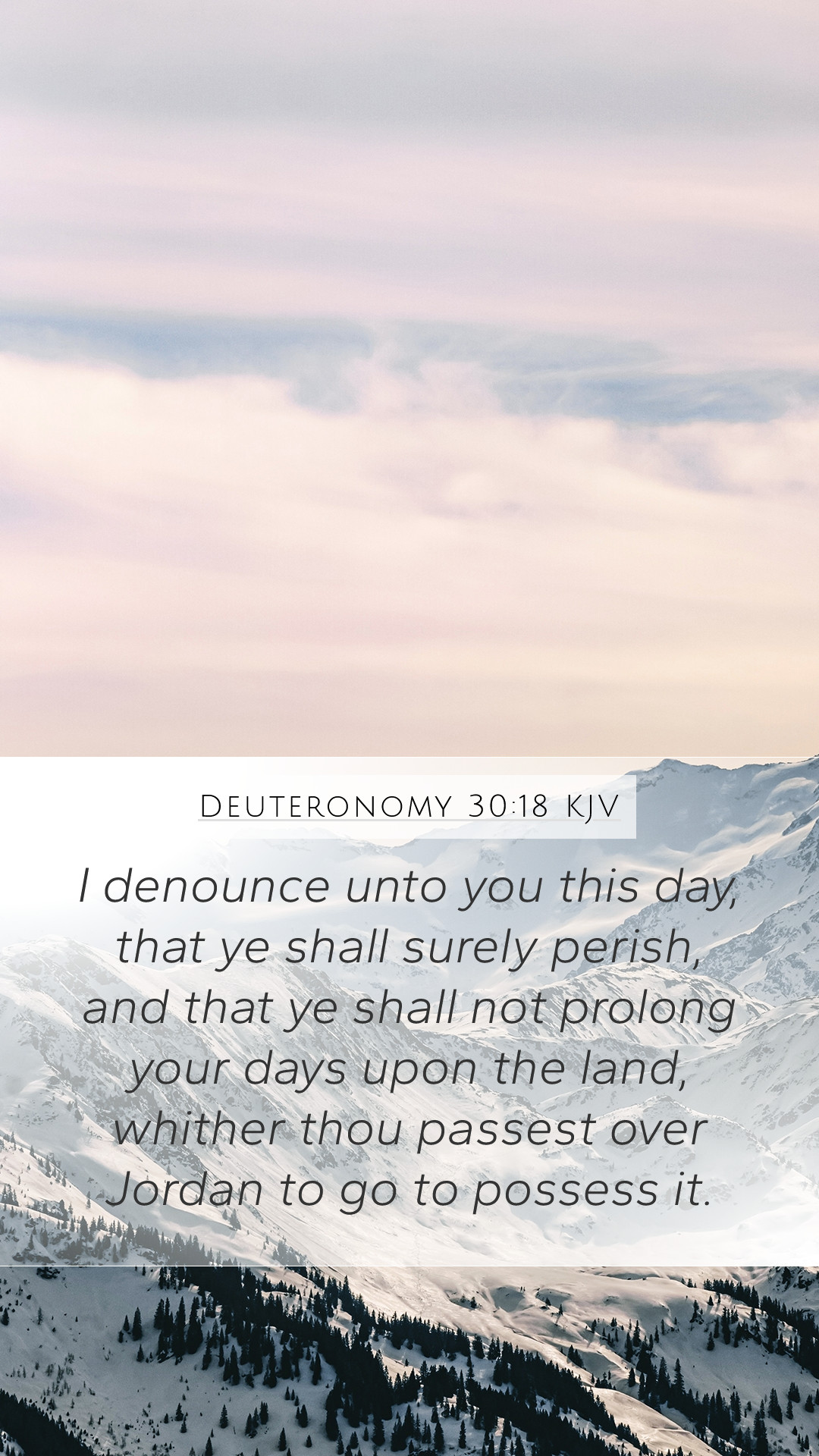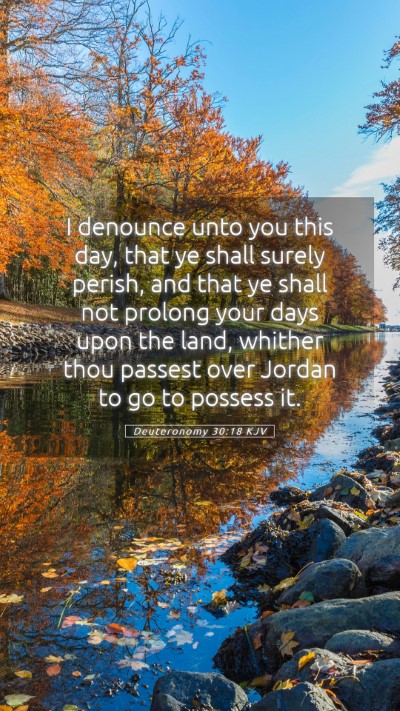Understanding Deuteronomy 30:18
Deuteronomy 30:18 reads: "I declare to you today that you will certainly be destroyed. You will not live long in the land you are crossing the Jordan to enter and possess." This verse holds profound significance within the broader context of Moses' final exhortation to the Israelites. Let's examine this verse using insights from renowned public domain commentaries.
Contextual Background
The Book of Deuteronomy serves as a critical reminder of the covenant between God and His people. Moses speaks during a pivotal moment as the Israelites stand on the brink of entering the Promised Land. This chapter emphasizes the consequences associated with obedience and disobedience to God's commandments.
Verse Analysis
-
Matthew Henry's Commentary:
Matthew Henry provides an in-depth analysis emphasizing the severity of choosing against God's counsel. He notes that the "certainty" of destruction reflects not just physical demise but spiritual disintegration—a highlight of the covenant's conditions of blessings for obedience and curses for rebellion.
-
Albert Barnes' Notes:
Barnes further expounds on the idea of warning, interpreting this as a clear indication that the people's fate hinges on their choices. He states that the land they are about to possess is to be filled with divine promise, but it requires their active participation in maintaining the covenant through obedience.
-
Adam Clarke's Commentary:
Adam Clarke delves into the emotional weight of the passage, highlighting Moses' role as a mediator expressing both hope and warning. Clarke interprets the declaration not merely as an admonition but as a motivational force urging the people towards commitment to God for their welfare.
Key Themes and Insights
Several primary themes emerge from this verse:
- Choice and Consequence: The essence of the text emphasizes free will. The Israelites were given the autonomy to choose obedience or rebellion, with profound implications for their future.
- Divine Justice: The declaration of certain destruction underscores God's righteousness. It acts as a divine warning, urging the people to adhere to His statutes to avoid judgment.
- Covenantal Relationship: This verse reflects the broader relationship dynamics between God and Israel—a theme reiterated through Scripture regarding fidelity to the covenant and its associated blessings and curses.
Applications for Daily Life
Understanding this verse provides valuable lessons for modern believers:
- Active Decision-Making: Just as the Israelites had to choose their path, individuals today are encouraged to actively engage in decisions reflecting their faith and values.
- Understanding Consequences: Awareness of the spiritual and moral consequences of choices can guide contemporary believers in their daily lives, urging them to remain steadfast in their commitments to God.
- Value of Warnings: Just as Moses provided warnings, believers today must remain open to counsel and accountability within their faith communities to navigate life’s challenges effectively.
Related Scripture References
For a more rounded study of this verse, consider the following cross-references:
- Joshua 23:15-16: Highlights the outcomes of disobedience in the land.
- Jeremiah 7:3-7: A call for repentance and a promise of staying in the land through obedience.
- Galatians 6:7-8: Emphasizes the principle of sowing and reaping concerning our actions.
Conclusion
Deuteronomy 30:18 encapsulates a critical message of choice and consequence, evoking a sense of urgency in the pursuit of faithfulness to God’s commands. The insights from various commentaries illuminate its application both in historical context and contemporary faith. Engaging with this verse through Bible study groups, online Bible studies, and other resources can enrich the understanding of one’s personal relationship with God, reminding believers of the weight their decisions carry.


